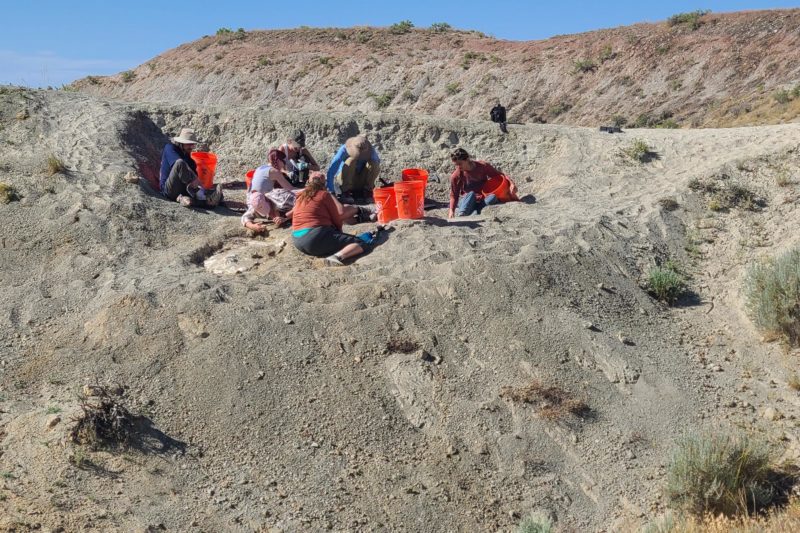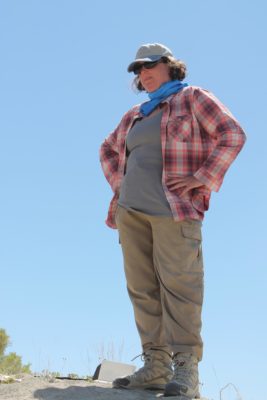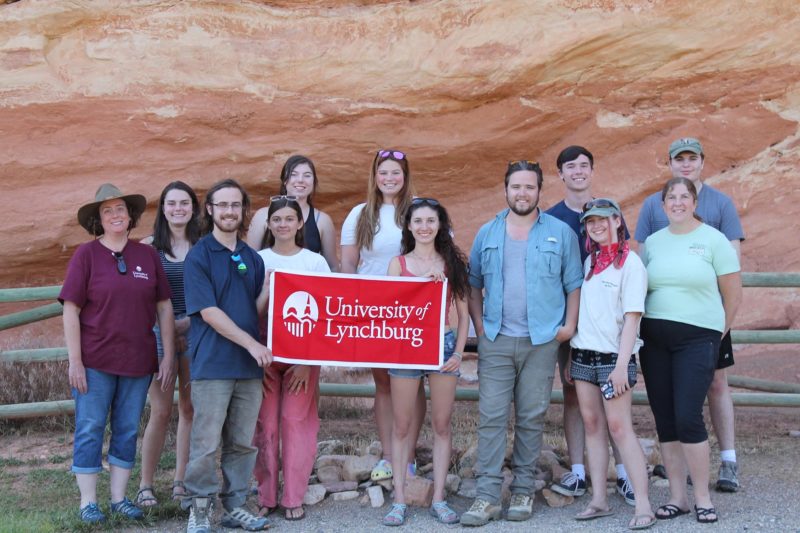
A big grant from the National Science Foundation will send six students to Wyoming for free next summer to excavate a dinosaur from the Jurassic Period. The nearly $400,000 GeoPaths grant will fund up to 18 students over three years. All expenses for the trip, including travel, lodging, and food — a total value of about $3,000 — are included.
The students will also receive a stipend for the summer and the academic year to be able to participate in the program, said professor and chair of environmental sciences and sustainability Dr. Brooke Haiar, who obtained the funding. Eligible students include Pell Grant recipients and underrepresented ethnic minorities.
“I’m very excited that this grant directly supports student groups who have historically not been able to participate in summer programs and off-campus research opportunities,” Haiar said. “Students will have the adventure of a lifetime, all while preparing themselves for a huge variety of careers.”

Participants will receive three academic credits for the summer research. A required internship with the Virginia Museum of Natural History in Martinsville will yield three more credits — as well as training in a variety of skills, including curation and social media marketing.
VMNH Executive Director Dr. Joe Keiper is excited about the partnership between the museum and Lynchburg.
“This project is the intersection of exciting science and student training,” Keiper said. “In addition, it continues a great collaboration with the University of Lynchburg, where academic and museum resources leverage one another.”
The museum internship will help students “build their résumés, try out employment relevant to their field, and make some decisions about their future direction,” said Bev Reid, executive director of career development at Lynchburg.
As with other for-credit internships, the Career and Professionalism Center will manage all the paperwork. As part of the grant, Reid’s office will also provide tailored workshops on career decision-making, résumé writing, and job or graduate school search.
“We look forward to getting to know these students individually and working with each on their career goals,” Reid said.
At the end of the program, students will have earned six credits toward a degree in environmental sciences and sustainability, plus get a jump-start on a career in the field.
Essentially, Haiar said, “I’m paying them to dig up dinosaurs and go get a job.”

A trained geologist, Haiar has been taking students on dinosaur excavations since she arrived at Lynchburg in 2009. It’s part of the University’s domestic study away offerings during the summer.
She describes the experience as “hot and dirty,” but exciting.
“It’s a lot of hard work, but it’s really fun,” she said, adding that day trips to Yellowstone National Park and other nearby attractions break up the dusty fieldwork.
The grant also includes equipment for Lynchburg’s paleontology lab and stipends for faculty and VMNH mentors, as well as for a student diversity liaison to be on call during the summer. Haiar explained that for some of the students, this will be their first time traveling across the country.
“This grant supports students who likely haven’t been away from home for an extended period of time, particularly camping and working in tough conditions,” she said. “Having a student diversity liaison available to offer remote support will be invaluable.”

